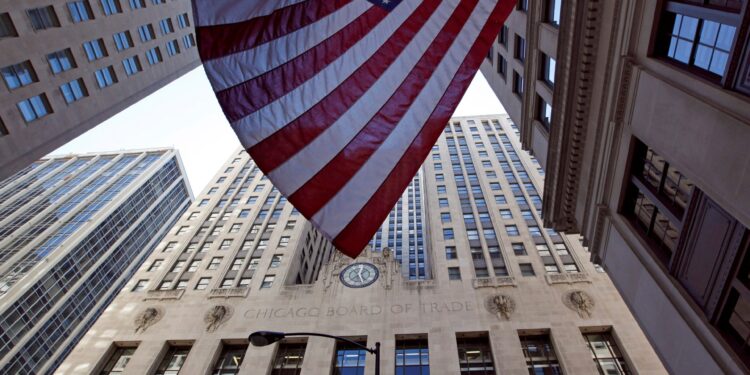Bloomberg said that the Federal Reserve Board (the central bank) indicated in its semi-annual report on financial stability that the burden of US government debt has become the greatest threat to the financial system in the United States, surpassing the ongoing inflation fears that have dominated the scene in recent years.
This report comes amid a turbulent economic environment characterized by rising debt levels, rising geopolitical tensions, and uncertainty about government policies.
The report, which was based on a survey of financial market players, shows how increasing federal debt, combined with high asset valuations and weak market liquidity, may lead to a deterioration in financial stability, raising significant concerns about the economic future of the United States.
The most important results and risks
According to the report, which was based on a survey of the opinions of players in the financial markets during the period from late August to late October:
- 54% of respondents indicated that the sustainability of federal debt poses a significant risk, an increase from 40% in the previous survey 6 months ago. This raises concerns that increased Treasury issuance may negatively impact private investment or limit the government’s ability to respond to economic crises.
- Rising tensions in the Middle East and uncertainty about government policies were ranked among the top risks.
- The report noted that asset valuations remain high and liquidity is “generally low,” with leverage levels across hedge funds at or near their highest levels since data collection began in 2013.
Household and corporate debt
Despite high delinquency rates on consumer and auto loans, especially among those with lower credit ratings, the Federal Reserve described household and business debt risks as “moderate.”
The report noted that these higher rates are partly due to increased borrowing during and after the coronavirus pandemic, rather than a sudden deterioration in households’ ability to repay.
Banking sector
The report confirmed that the American banking sector “remains sound and solid,” with capital ratios remaining at record high levels.
However, the report warned that some lenders are increasingly relying on short-term funding sources such as brokered deposits, which may be less stable in times of crisis than traditional insured deposits.
The report indicates that the continued increase in federal debt may lead to a reduction in private investment and restrict the government’s ability to deal with economic crises.
With more fiscal deficits expected under the new administration, concerns are growing about how to deal with these economic and financial challenges, according to Bloomberg.



